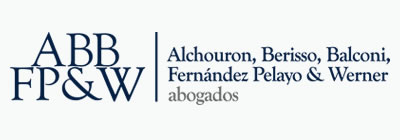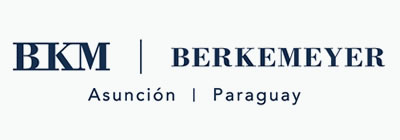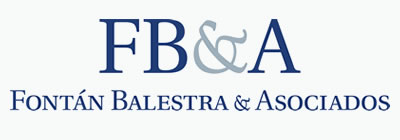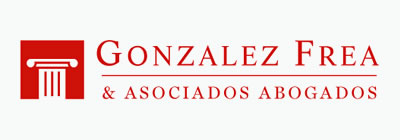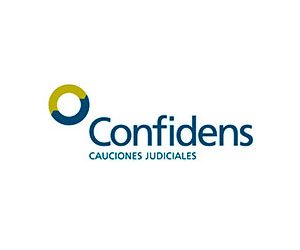Shearman & Sterling LLP.
Client Publication
At the end of last month a revision of the UK’s existing Combined Code on Corporate Governance, now renamed the UK Corporate Governance Code (the “Code”), was published, taking into account certain aspects of the 2009 Walker Review on corporate governance in UK financial institutions. This briefing focuses on the key changes made to the Code.
Key Points
- Not a fundamental re-write but some significant changes have been made, highlighted below.
- Will be the new corporate governance benchmark against which both UK and non-UK-incorporated companies with premium equity listings on the LSE will have to disclose their corporate governance regimes and practices.
- Will have to be disclosed in annual reports for periods beginning on or after 29 June 2010.
- Key changes include:
o New principles – e.g. the role of non-executive directors (NEDs) in challenging and developing strategy
o Amendments to existing principles – e.g. boards should consider the benefits of gender and other diversity when making appointments
o Amendments to Code provisions – perhaps the most notable of which is a new recommendation for the annual re-election of all (FTSE 350) directors.
- The Code’s provisions dealing with the responsibilities of institutional shareholders with respect to their investments, etc. have been removed and will be included in a new Stewardship Code.
Background
- Since the early 1990’s the UK has had a non-statutory, voluntary code of best corporate governance practice, which has applied to UK incorporated companies with “top tier” main market equity listings by virtue of requirements in the UK’s Listing Rules that such companies disclose in their annual financial reports their compliance with the code. Where they are not compliant with it, they must give reasons for this.
- The Financial Reporting Council (the FRC), which is an independent regulator responsible for promoting high quality corporate governance and reporting in the UK, has responsibility for publishing and monitoring the UK’s corporate governance code and certain other related governance guidance. A copy of the new Code can be downloaded from the FRC’S website by clicking here.
- As a result of changes made to the UK’s Listing Rules with effect from 6 April 2010, all companies, wherever they are incorporated, that have a “top tier” (now called Premium) equity listing on the main market of the London Stock Exchange must disclose in their annual report the extent to which they comply with the Code, or their reasons for not complying with it.
The 2009 review of the Code
- The Code has been expanded and revised several times since its first introduction and during 2009 the FRC conducted a detailed review to see what changes might be required in the light of the problems revealed in connection with various corporate failures arising out of the credit crunch and related problems in 2008.
- The FRC has decided not to include in the revised Code any sector-specific provisions. UK regulated banks and other financial institutions subject to the Code will therefore face separate disclosure and compliance requirements under the various remuneration and other governance rules that the FSA and HM Treasury have produced for the financial sector, following the 2009 Walker Review of corporate governance failings among UK financial institutions (the Walker Review).
How the Code works
- The Code is comprised of certain core or “main principles” and listed companies have to explain how they have applied them and not just whether they have applied them. These are supplemented by various supporting principles and other Code provisions which provide greater detail about, and offer examples of how, the main principles may be applied. Listed companies have to disclose whether or not they have been in compliance with these provisions and, if they have not, their reasons for that, i.e. for deciding to apply a main principle in a different way from that suggested by the Code.
- The FRC emphasises that shareholders should not evaluate compliance with the Code in a mechanistic way and that departures from the Code should not automatically be viewed as “breaches”.
- The FRC has also decided not to make any changes to the existing requirement for Code compliance and other information to be disclosed in annual reports. It had consulted on whether this disclosure should be permitted to be given on the company’s website.
Leadership and board effectiveness
- A number of new provisions, or provisions that were not previously ranked as main principles, dealing with the leadership and effectiveness responsibilities of the board have been included in the Code as new key main principles. This reflects the increased emphasis that the Code now provides on these aspects of the board’s role.
- In particular, four new main principles have been included, emphasising:
- the leadership responsibility for the board that the chairman has,
- the role of NEDs in challenging and developing strategy,
- the need for the board to have an appropriate balance of skills, experience, independence and knowledge of the company, and
- the need for all directors to have sufficient time to discharge their responsibilities effectively.
- Related key changes in other provisions of the Code, include highlighting:
- the need for directors to have appropriate knowledge about their company and access to its operations and staff. To perform their role properly and effectively, NEDs will need to be informed about the business of their company so that they can offer more, in their contributions to the board, than just an impartial and independent view on executive strategy, and
- the chairman’s responsibility for ensuring that adequate time is made available to discuss strategic issues and for promoting a culture of openness and debate within the board.
There is also a new requirement for:
- board appointments to be made on merit, against objective criteria, and with due regard to the benefits of diversity, including that of gender,
- the chairman to agree and regularly review individual training and development needs with each director, and
- for FTSE 350 companies (1):
- an externally-facilitated evaluation of the board at least every three years. The FRC has said it will consider extending this requirement to “smaller” companies when it next reviews the Code, and
- the annual re-election of the whole board by shareholders.
This new requirement for annual re-election is perhaps the most notable change to the Code. Since it is a Code provision, it will be open to companies not to offer annual re-election to shareholders and instead to explain why they think their governance practices in this area adequately deal with the main principle which requires regular re-election without the need, at least initially, for annual re-election.
However, it seems likely that UK insititutional shareholders (at least) will expect FTSE 350 companies to fall into line and offer annual re- election. It is worth noting that in commenting on this particular change, the FRC said that the voting records for the period 2000 to 2009 showed that only 19 directors from nine companies on the FTSE All Share Index lost a vote. Obviously, shareholders will also have a vested interest in using their powers to vote down directors each year, responsibly.
Board responsibility for company strategy and risk management
The Code has also been revised to highlight the board’s responsibility for the long-term success of the company and for strategic decision-making and risk control within the company.
- A new main principle has been added stating that the board is responsible for defining the company’s risk appetite and tolerance, and
- Two new Code provisions have been added:
- one, based on wording used in the FRC’s so- called Turnbull Guidance on Internal Control, i.e. FRC guidance on the Code’s provisions dealing with internal control and risk management, requires the board to satisfy itself that appropriate systems are in place to identify, evaluate and manage the significant risks faced by the company, and
- another requires the board to include in the company’s annual report an explanation of the basis on which the company generates revenues and makes a profit from its operations, i.e. its business model and its overall financial strategy.
The FRC believes that UK companies that are properly applying the UK Accounting Standard Body’s voluntary Reporting Statement: Operating and Financial Review in drawing up the enhanced business review, required under existing UK company law, to be included in their annual directors’ reports, will already be providing the required information. The Code is supplemented by three separate sources of guidance - two of which are also being reviewed as part of the process of updating UK corporate governance – and which are:
- the so-called Higgs Report on best practice guidance relating to NEDs – this is being revised following a consultation exercise carried out by the Institute of Chartered Secretaries and Administrators (ICSA) and a further consultation draft of the report is expected to be issued later this month. Click here to access ICSA’s materials with respect to this review.
- the Turnbull Guidance mentioned above – which is to be reviewed later this year. Click here to access a copy of the guidance.
- the FRC’s Guidance on Audit Committees – which suggests ways of applying the Code’s provisions relating to audit committees and was last revised in 2008; a copy of the guidance can be accessed by clicking here. No major changes are contained in the Code with respect to audit committees.
Directors’ remuneration
The Code already included a number of specific provisions dealing with directors’ remuneration: such as requiring a significant proportion of executive directors’ remuneration to be linked to corporate and individual performance, banning share options for NEDs and requiring payouts or grants under incentive schemes to be subject to challenging performance criteria and to be phased, rather than awarded in one large block, etc.
Since the new Code does not include any of the financial sector-specific proposals of the Walker Review and since the FRC in its review stated that it did not want to risk the Code becoming quickly out of date in this area by being made more prescriptive, the changes in this area have been more ones of emphasis than of substance. Thus the Code now requires:
- the performance-related elements of executive directors’ remuneration to be designed to promote the long-term success of the company,
- payments under incentive schemes to be subject to appropriate non-financial performance criteria and to be compatible with the company’s risk policies, and
- consideration to be given to reclaiming variable components of remuneration “in exceptional circumstances of misstatement or misconduct”.
The Code also makes it clear that NEDs should not receive any performance-related remuneration, and not just no share options.
Liaison with shareholders
Another area in which changes have been made to the Code is with respect to the board’s liaison with the company’s shareholders as well as with regards to the governance responsibilities of institutional shareholders.
The Code has been revised:
- to require the chairman to ensure that all directors understand the company’s major shareholders’ issues and concerns. Previously, this understanding was primarily a responsibility of the chairman and the senior independent director (the SID), i.e. one of the NEDs that the Code requires to be designated as such and who has certain responsibilties under the Code, and
- so as to enhance the SID’s role, to the extent that he is now to act as a sounding board for the chairman and an intermediary for other directors when necessary.
The new Stewardship Code
The Code previously included provisions addressed to institutional shareholders, rather than boards, relating in very general terms to their role as stakeholders in the companies in which they invest. Following recommendations in the Walker Review, these provisions have been removed from the Code and are proposed to be included in a separate Stewardship Code on which the FRC is currently consulting. Click here to access a copy of the FRC’s consultation document on the proposed Stewardship Code.
This new code would be based on a code previously produced by the Institutional Shareholders’ Committee, and could include provisions dealing with, for example, disclosure of institutional shareholders’ voting policies and voting activity. It is proposed that this should apply, on a voluntary basis to all institutional shareholders, both UK and foreign, and on a “comply or explain” basis.
Final thought
The FRC expects to review the Code again in 2013. It is to be hoped that by then the improved governance that the new Code is designed to foster in the UK will be clear for all to see. That said, it will also not be surprising if, in an area that is undergoing rapid global change and development, there are new issues that a further review of the Code will have to address.
(1)i.e. companies included in the FTSE 100 and FTSE 250 indices
Opinión
Deloitte Legal


opinión
ver todosKabas & Martorell
Gericó Associates


